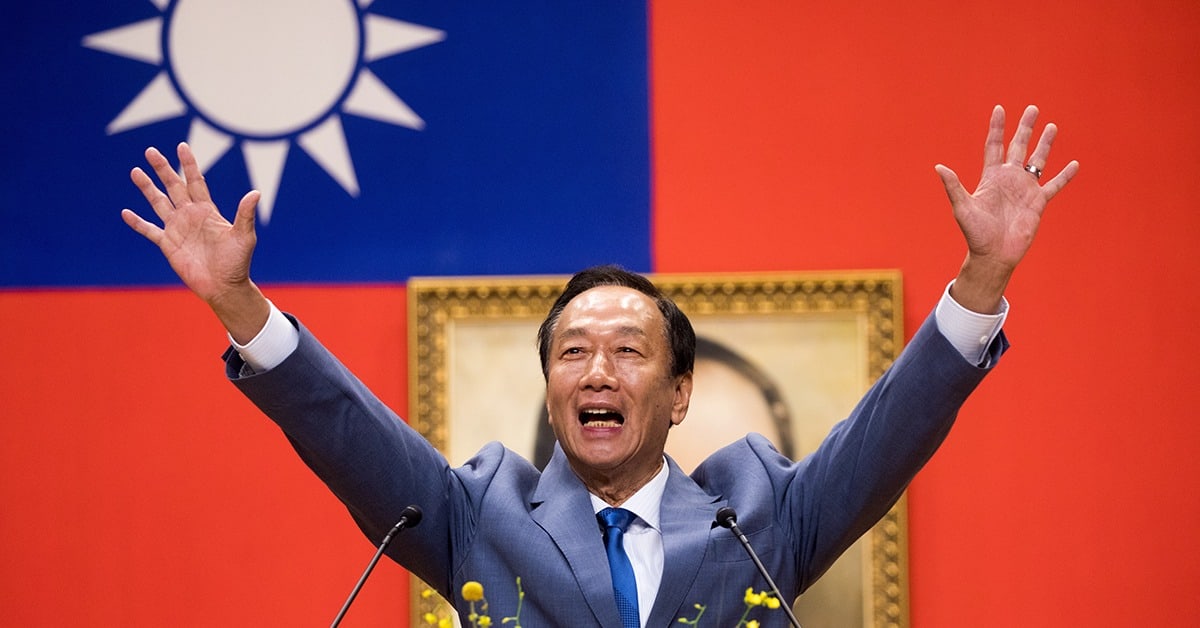While the winner of Taiwan's presidential contest is uncertain, whoever wins will have to manage the island's increasingly difficult relationship with mainland China.

Foxconn founder Terry Gou explains his decision to seek the presidency of Taiwan as a bid to use his close business ties to China to ensure peace and prosperity across the Taiwan Strait: to keep the self-governing island from becoming, in his words, “the next Ukraine.” But his appearance in the race comes at a tense time, as Beijing escalates its military activities in the region.
Owing to Gou’s wealth, assembling the necessary 290,000 signatures to run for president will be relatively easy, says Fang-Yu Chen, assistant professor of Political Science at Taiwan’s Soochow University. He joins a crowded race that already includes Lai Ching-te, of the ruling Democratic Progressive Party (DPP), which tilts toward independence for the island; Hou Yu-ih, mayor of New Taipei, who earlier beat Gou to be the main opposition Kuomintang’s (KMT) standard bearer and who favors closer ties to the mainland; and former Taipei mayor Ko Wen-je of the Taiwan People’s Party, which stakes out a more ambiguous “third way.”
On Gou’s chances of splitting the opposition parties, Chen is less confident.
“I think the marginal effect is shrinking for Gou,” he says. The billionaire tech mogul’s announcement “has already speeded up the integration of the opposition. There is some rumor that the local factions of KMT are not really satisfied with Gou. Also, rumors show that there are a lot of talks between Ko Wen-je and KMT on the legislative elections. The short-term beneficiary may be Hou, who “keeps alive in the game.”
As to how the election will impact Taiwan’s relationship with China, Chen argues that the outcome is up to China, not Taiwan. “Theoretically, Beijing’s goal is to have just one candidate,” he says. “However, it is very difficult to predict Beijing’s strategy and what is their best goal: especially on picking one most favored candidate, as we do not know who is the most favored yet.”
The presidential election is scheduled for January 13, 2024, with the winner to be inaugurated on May 20. For whoever wins the race, “how to deal with China” will doubtless be the paramount agenda item, Chen says, with stark geopolitical implications for the rest of the world.



